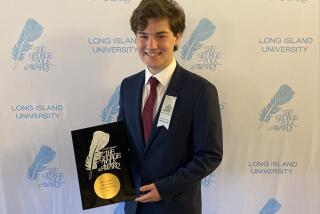Stanford Shifts Efforts as DNA Patent Expires
- Share via
Stanford University’s $11-million-a-year bonanza--an exclusive patent on gene-splicing technology--has expired after 17 years, sending the school scurrying into new fields to replace the lost revenue.
One innovation is a trademark of consumer products developed with Stanford technology, under the name Sondius. In the field of digital sound, for example, Stanford officials hope that--with help from the university’s new joint licensing agreement with Yamaha Corp.--Sondius becomes as big a name as Dolby.
Unlike patents, which last 17 years, trademarks can be renewed indefinitely.
The patent on recombinant DNA technology, which launched the biotech industry, has generated more than $200 million in royalties for Stanford and the UC San Francisco. The process was developed from 1973 studies by Stanford’s Stanley Cohen and UCSF scientist Herbert Boyer--who later founded San Francisco biotech firm Genentech.
The technology entered the public domain when the patent expired Dec. 2.
But Stanford officials say a new approach to relationships with industry could prove even more lucrative. The university is entering partnerships and ventures with established corporations and start-ups to support campus research and exploit its products.
“A lot of the things that Stanford is now trying to do [are] not focused on intellectual property but on . . . research that industry needs, and getting them to pay for it, even though it’s long-range,” said Jim Gibbons, special counsel for industry relations to Stanford President Gerhard Casper.
Since Gibbons’ appointment a year ago, Stanford has won funding from Eastman Kodak Co., Canon Inc. and other photography companies to explore development of a coded signal chip for cameras that would replace film.
Another venture, financed by $2 million from Microsoft Corp. co-founder Paul Allen, is a study of human genetic development by researchers in biology, computers and medicine that could be useful to pharmaceutical companies.
The Stanford-Yamaha partnership, signed in July, involves more than 400 patents that are to be pooled to develop new synthesizer music technology. Consumer products would be sold under the Sondius-XG label.






